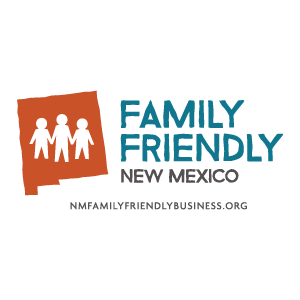New Mexico has been trying to solve the problem of women receiving lower wages than men for a long time, and has made some progress, but there’s still a big gap between wages for men and women. The problem of women getting paid less than men affect women from different racial and ethnic groups in different ways. While white women generally earn less than men, Latina, African American, and Native American women usually face an even bigger pay gap compared to men. For example, Hispanic women only make 52 cents and Native American women only make 51 cents for every dollar a white man makes. This shows that women, especially those from different ethnic backgrounds, aren’t being paid equitably compared to men.
In New Mexico in 2023, more women got college degrees than men, and there are a few reasons why. First, programs like the Lottery and Opportunity Scholarships are making it easier for women to afford college, allowing more women to pursue higher education. Second, COVID-19, has changed how we learn, with online classes making it easier for women to juggle school and other responsibilities. Because childcare is now free and available to most New Mexicans, women can balance school and family responsibilities more effectively.
The New Mexico Fair Pay for Women Act was signed into law by Governor Martinez in 2013 to tackle wage discrimination based on sex. It builds on the federal Equal Pay Act by extending protections in New Mexico. The law prevents employers with more than four employees from paying women or men differently for the same work and prohibits retaliation against employees who raise concerns. Individuals can file complaints with the New Mexico Human Rights Bureau if they believe they have experienced wage discrimination.
The Gender Pay Equity Initiative is a joint effort involving the city of Albuquerque, Bernalillo County, and the Water Authority aimed at reducing the gender wage gap in Albuquerque. As part of the initiative, vendors are required to disclose gender wage differences within their companies, and those submitting bid proposals must include a pay equity report form. Vendors demonstrating fair wages for all employees are given priority consideration for awards.
Women business owners can take several steps to support equal pay in their workplaces.
- First, they can ensure that labor law posters outlining equal pay policies in New Mexico are displayed in all public workplaces, ensuring that employees are aware of their rights and expectations.
- Additionally, when posting job applications, it’s important to include pay ranges to enhance transparency and allow candidates to make informed decisions.
- Also, employers should avoid offering a new employee a wage based solely on their previous salary, as this perpetuates the gender pay gap and is inherently unfair.
- Lastly, fostering an environment of transparency about wage differences between male and female employees can help address any existing disparities.
- Evaluate pay by job classification and gender. Consider making this information available to employees and the public.
By implementing these straightforward measures, women business owners can contribute to narrowing the gender pay gap and promoting equal pay in the workplace.
For more information, sample policies and to be sure you are in compliance with the NM Fair Pay for Women Act, download the Family Friendly New Mexico Pay Equity toolkit.
 Jenifer Raphael Getz, Executive Director
Jenifer Raphael Getz, Executive Director
Commission on the Status of Women (Agency #60100)
The Commission on the Status of Women’s Executive Director Jenifer Raphael Getz is a social justice activist with a lifelong commitment to women’s issues, and a belief in making change by engaging multiple stakeholders to identify shared goals. She is active in New Mexico’s non-profit community, having served as Interim Executive Director and Vice President of the Board of the Southwest Women’s Law Center, and consulted and written grant proposals for Navajo & Hopi Families COVID-19 Relief Fund, the New Mexico Immigrant Law Center, and Planned Parenthood of the Rocky Mountains. Jenifer has a background in finance, administration, and management, working previously as a senior auditor with Atkinson and Co., a small business owner of Sunquest Aviation, and Treasurer of the Board of the Jessie Smith Noyes Foundation. She has raised two adult children in New Mexico with her husband of 31 years.

